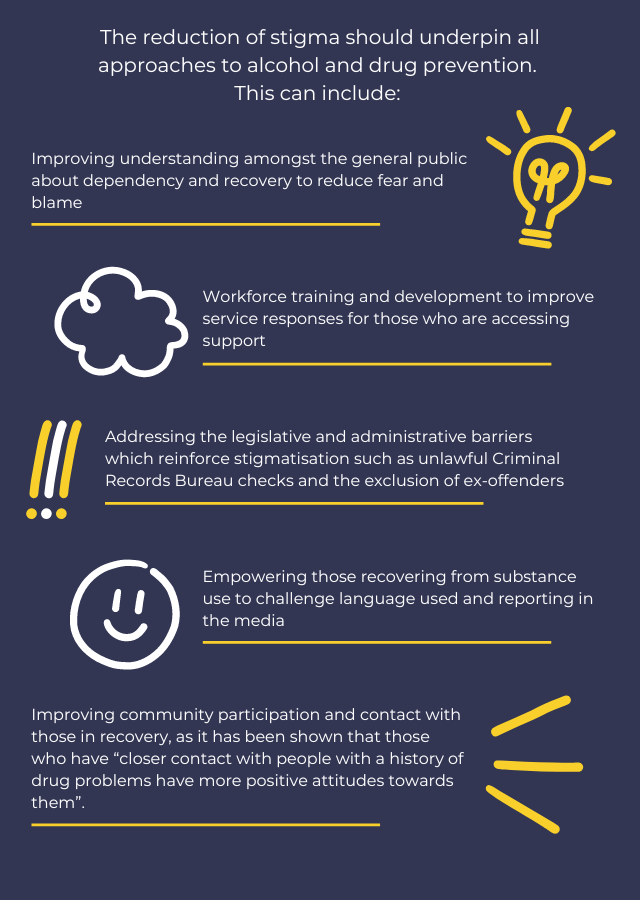
Stigma encompasses negative stereotypes which lead to individuals or groups being marginalised or discriminated against. Sentiments of shame and disapproval can surround alcohol and drug use across society.
It has been found that when compared with people suffering from substance-unrelated mental health issues, alcohol-dependent persons are:
- Less frequently regarded as mentally ill
- Held much more responsible for their condition
- Provoke more social rejection and more negative emotions
- Are at particular risk for structural discrimination.
Stigma is harmful in that it can create barriers for individuals to access support, advice and treatment in relation to alcohol and drugs. Certain groups can be more likely to experience stigma in relation to alcohol and drug use. For example, there is overall less acceptance of women’s drinking, and women who drink are “more likely to be portrayed negatively compared to men”.
In addition, individuals can experience stigma in relation to alcohol and drugs when applying for jobs. Although employers are willing to consider supporting existing staff who develop addictions, “they are much less willing to recruit people with an existing history of dependence”.
